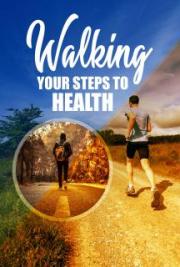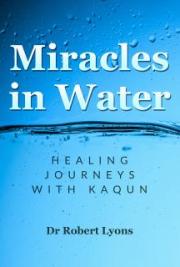atherosclerosis or *aging process' reversible?"
A German pathologist, who was well-known to many, arose
and hesitantly gave the following answer: During World War
II he and other pathologists were assigned to study the post-
mortem conditions of victims who, after incarceration for several
years, had died in European concentration camps.
It was found that even in older people there was an astonish-
ing disappearance, through absorption, of atherosclerotic fatty
deposits in the arteries of both the heart and the brain. These
amazing results were attributed to the complete absence of any
fat in the meager scraps of food given to the victims of perse-
cution in the camps. Obesity was completely unknown. Virtually
all victims who had died had exhausted all fat deposits in the
body and were underweight.
The medical congress was even more startled to hear the
German pathologist report the following: The absorption and
reversal of atherosclerosis in the World War II victims was the
same that he and other pathologists had often found among the
German population in World War I. At that time, the reason for
the reversal or absorption of atherosclerosis was ascribed to
lack of fat in the German diet resulting from the British block-
ade of Germany. No fat products necessary for war material
could get into Germany. Therefore, all fats possible had been
removed from food for the manufacture of war products.
It is thus perfectly conceivable that the so -called aging
process itself—atherosclerosis—may be reversed in many older
people by following the low-fat diet and nutritional program.
Possibly this accounts for the remarkable changes, noticed in
older as well as middle-aged people, who have carefully followed
our diet and nutritional way of eating and living.
No wonder that people, after the diet, so often report the
results in such remarks as, "I never felt better in my life", "I
190
GROWING YOUNGER WITH THE YEARS
seem to feel younger and younger each day," or "Doctor, I feel
like doing things I haven't done since I was a youngster, I feel so
young!"
Typical also is the case of our patient, Mr. J., a 61-year old
manufacturer. After 40 years of back-breaking labor, he had
built up a nationally-known, successful business that made preci-
sion tools for engines in the airplane industry. His son and son-
in-law noticed that in the past year dad had "slowed up"
pathetically.
Mr. J. seemed suddenly to have become an old man. He felt
tired, listless; it was a great effort for him to stay awake during
important conferences with production engineers, salesmen, and
Army Air Force officials who came to study the "plant," its
methods of manufacture, tooling, and equipment. On several
occasions, to his intense embarrassment and utter humiliation,
he discovered that he had fallen asleep during important con-
ferences.
A visit to his physician, a noted university professor, and a
thorough check-up in the hospital yielded no signs of any dis-
ease. Mr. J. was informed he needed a long rest and vacation,
that he was tired out and should take it easy, that he should
"act his age."
There followed a visit to the travel agency by Mr. J. and his
wife. They selected a luxury cruise round the world for four
months. They enjoyed it, although Mr. J. noticed he tired easily
when walking around seeing the interesting sights in various
countries. He also seemed tired and sleepy most of the time.
When he did go to sleep, he slept restlessly and fitfully. On
awakening, he felt even more tired than he was when he went
to bed the night before. It seemed difficult for him to concen-
trate on anything for long. Even watching the movies aboard
ship seemed to tax his patience and he would leave in the middle
of a picture, finding himself too restless and "twitchy" to sit
for too long. Yet his appetite was the same as always. As a
matter of fact, he was a bit too "portly," but he carried his extra
GROWING YOUNGER WITH THE YEARS
191
weight well; in fact, it made him look dignified and impressive.
When Mr. J. returned from his long voyage, he felt not much
different than he did on leaving. True, he was rested and eager
to get back to the plant to see how the new models being pre-
pared for the Air Force were working out.
After a week back at work, he found himself feeling exactly
the same as before his voyage. Sleepy, tired, and now growing
nervous and irritable, much to the dismay of his family, for he
had always been a model of kindness and emotional stability.
In desperation, his wife persuaded him to try the new low-fat
diet with the vitamin- nutritional plan of eating and living. He
felt he had nothing to lose and agreed to give it all a "sporting
chance," but he really suspected the whole thing was a ridicu-
lous fad. After all, he ate three good square meals a day. What
was the point of losing weight and going to all this fuss about
funny "health" foods?
To his own amazement and disbelief, in one month he noticed
sudden changes in himself. Still later, he found himself one
day hurriedly running upstairs ahead of his son in his eagerness
to see a new machine installed. A few months later, on another
occasion, he noticed that his younger associates were growing
tired after a long conference. They asked for a coffee-break.
And yet he felt just as fresh as when he started. He really
couldn't understand it. He was sleeping well for the first time
in a long while and noticed that, although he had lost 25 pounds
in weight and had to pull in his belt three notches, his step had
become light and springy.
In another month, the whole world seemed somehow to be a
new one, he felt so good. He could hardly wait to get to work
in the mornings. He felt a real joy in all he did, was conscious
of a continuous surge of cheerfulness and optimism in every-
thing he did and said. In short, he felt young again!
Now he is a real convert to the low-fat nutritional method
and urges it on his children, his business associates, and every-
one who will listen. Clearly, Mr. J. was the typical case of
192
GROWING YOUNGER WITH THE YEARS
overweight and chronic malnutrition amidst plenty. His body
had great need of severely lacking, vital nutritional necessities.
His characteristic symptoms of chronic fatigue and premature
aging were repeated hundreds of times in the cases where Doctor
Tom Spies and his associates had similar, extraordinarily suc-
cessful results.
Weight control also contributes to healthy old age.
The case of our manufacturer Mr. J. brings up and emphasizes
also the necessity for ideal weight in older people, as well as
in the younger ones.
Particularly if you are past 50 or 60 years of age and are
overweight, you can feel healthier and better by reducing your
weight to normal. Suppose that you weigh 170 lbs. and should
weigh 150 lbs., so that you are 20 lbs. overweight. If you are
the average active person, you take at least a thousand steps
each day. This means you "drag" around daily with you 20
lbs. x 1000 (steps) or 20,000 lbs. This is about 10 tons.
Your heart then must pump all the harder to carry this extra
10 tons around with you (on your back, so to speak) every day!
No wonder your heart tends to wear out sooner and shortens
your life.
Can youth be restored in the prematurely aged? Per-
haps the greatest challenge to experimental science has been
the question, "Can youth be restored in the prematurely aged?"
In both animals and humans whose premature aging is con-
tributed to by vitamin and nutritional deficiencies, nutritional
science has been able to answer "yes" in many cases.
There is an old saying used by both the medical profession
and the public, "You are as old as your arteries." This concept
led us to investigate whether it would be possible to produce
"old age" in the arteries, heart, and brain of experimental ani -
mals, and to attempt the crucial challenge of whether these
arteries could be restored to normal health and youth again
afterwards.
Accordingly, in 1945, my associates and I fed a high-fat diet
GROWING YOUNGER WITH THE YEARS
193
and cholesterol to a series of 43 experimental animals. Within
30 to 90 days we were certain that the majority of the animals
had already developed from moderate to severe atherosclerosis
in the vital arteries around the heart as well as in other parts
of the body.
Then, over a 6-month period, we fed daily large quantities
of concentrated extracts from Vitamin-B complex to the ani-
mals in one group and no vitamins at all to the other group.
These special vitamin extract feedings were based on the recent,
original discoveries of the value of these nutritional substances
(called "lipotropic" or fat-preventing) made by Doctor Charles
Best and his associates at the University of Toronto. Dr. Best
was the co-discoverer, with Dr. Frederick Banting of Canada,
of insulin.
We soon noticed great changes in the untreated animals, who
had rapidly developed significant atherosclerosis. This con-
trasted sharply with another group of "controls" that had not
been fed the high-fat, high-chholesterol diet, and who were
free of atherosclerosis. At the end of a year, the atherosclerotic
animals were sluggish, inactive, and disinterested in what went
on around them. They showed a drying up and sparseness of
hair; poor tooth and nail growth; "rheumy" eyes, and poor
appetites. In short, they presented the picture of "old age," even
though, chronologically, they were still young animals.
But after six months of intensive feeding of very large quanti-
ties of Vitamin-B complex constituents to the atherosclerotic
group of animals, the changes that took place in them were
startling. After examination of the artery tissues in the animals,
we found (to quote from our scientific reports published in the
medical journals) that "there was re-absorption of athero-
sclerosis in the majority of those animals whose atherosclerosis
had been produced by the fat and cholesterol feedings." In other
words, the aged arteries, filled and damaged with the fatty
plaques or deposits that were destroying the blood vessels, had
become normal and healthy again!
194
GROWING YOUNGER WITH THE YEARS
The changes that took place in the appearance and behaviour
of the treated animals were also a pleasure to behold. They were
frisky again, full of play and mischief, alert to every sound and
movement about them, and in great spirits. Their appearance
was also remarkable. Hair growth, color, and texture had be -
come youthful and luxuriant, their eyes sparkling, and their
appetites voracious.
Similar results were also found in the absorption of athero-
sclerosis in experimental animals at Columbia University by
Doctor Albert Steiner and his associates. Other investigators,
as well, demonstrated similar results in the experimental pro-
duction and reversibility of "old age."
These nutritional lessons have been very quickly learned by
the farmer. He saw to it promptly that large daily supplies of
vitamins and nutritional supplements were fed to his livestock
and his poultry. They have become healthier, and yield more
milk, butter, and eggs, and tastier beef, ham and pork. In addi -
tion, they resist illness far better, reproduce their young more
efficiently, grow faster, and are far superior in every possible
respect.
I recall a memorable case that brought this lesson home to
me in an unforgettable way. Over 20 years ago, I was attend -
ing a group of ward patients at a university hospital in Phila -
delphia. One of my charges, Roy W., was a pathetic case—a
young student who suffered from a chronic infection of the bone
that he had had since childhood. It was imperative that, to cure
the condition, he undergo surgery by our brilliant and gifted
professor of orthopedic surgery, Doctor John Royal Moore.
Unfortunately, this young man's nutritional state—his emaci-
ated condition from his chronic and life-threatening infection—
was so bad, that he was judged to be in no condition to undergo
the badly needed surgery. Even his liver and other organs had
become damaged by the chronic infection. But the most appall-
ing damage was his visible aging. This 19-year old looked like
a very old man and talked and felt like one. His hair was gray-
GROWING YOUNGER WITH THE YEARS
195
ing, his eyes dulled, his skin was wrinkled and his voice feeble.
No types of nutritious diet, routine vitamin pill daily intake, or
medicines were of any avail in overcoming his weakness. It
seemed impossible to improve his health to the necessary pre-
operative level.
In desperation, in the attempt to counter the boy's obvious
nutritional deficiencies and his premature aging, I decided upon
a nutritional approach—we would feed him massive amounts of
nutritional supplements. In addition to Herculean doses of all
known vitamins, I persuaded his broken-hearted mother to go
to the city abattoirs and get the freshest liver available. The liver
was then pressed by her own [hands and squeezed to get the fresh
juice. Huge amounts of this were combined with large daily
doses of flavored Brewer's yeast and whole wheat germ in addi-
tion to the large amounts of vitamins mentioned above.
An amazing transformation took place in this young boy within
two months. He became strong, bright, alert, and looked his age
again. His whole appearance became altered. His skin, eyes,
and—strangely enough—his graying hair, were rapidly
becoming normal in color again. The endless, back-breaking
hours that his mother had spent daily preparing and taking his
life-sustaining nutritional aids to his bedside at the hospital
had been rewarded.
Roy made a splendid recovery after his operation. He be-
came the picture of health, and later married and took a posi-
tion as librarian at a famous university. His history was truly
a triumph of the wonders of nutrition—nutrition as it affects
the young as well as the old,
The next step in our research was to see whether our experi-
mental results with animals in "restoring" old arteries to their
youthful state meant anything as far as humans were concerned.
First, my co-workers and I studied for three years the effects
of members of the Vitamin-B complex group (such as choline,
betaine, and inositol) on the atherosclerosis of 230 patients
suffering from coronary artery disease. When we published our
196
GROWING YOUNGER WITH THE YEARS
encouraging results of treatment in the American Heart
Journal for May 1950, we were persuaded to use a
comprehensive treatment method in attacking the problem of
atherosclerosis.
Several more years of research on this question convinced us
of the value of an ideal combination of: (a) low-fat, high-protein
diet, (b) large amounts of Vitamin-B complex together with
lipotropic (fat-preventing) agents such as choloine, betaine, and
inositol (all members of the vitamin B complex) and (c)
nutritional supplements such as liver extract, lecithin, and
Brewer's yeast.
Since it was now apparent to all medical scientists that the
vast majority of the population was already afflicted with
atherosclerosis by the time age 50 or 60 was reached, it was
clear why this condition ranked first now as the cause of death
and illness in the United States.
What was not so clear, however, to most investigators and
physicians was that atherosclerosis, or the "aging process" as it
has so often been called, was responsible for the remarkable
prevalence of premature old age, or "getting older." And what
was equally important was the incredibly widespread symptoms
in those who were past 50 or 60 of fatigue, lack of energy and
vitality, nervousness and depression—not to mention a multi-
tude of digestive tract, circulatory, mental, and other disturb-
ances that stemmed from the combination of atherosclerosis and
chronic nutritional deficiencies.
To put these realities to the "acid" test, my co-workers and I
selected from our hospital research service 102 cases of gener-
alized atherosclerosis and divided them into two main groups.
Cases in one group of 40 patients included mostly individuals
who had proven atherosclerosis of the brain, heart, and other
organs. This group was given the combination of diet, massive
amounts of vitamins and nutritional supplements as just de-
scribed and as outlined in Chapter 5 ("Lecithin and Food
Supplements"). Another and identical "control" group of 40
patients, having the same atherosclerotic conditions, was
GROWING YOUNGER WITH THE YEARS
197
observed for comparison. This group received no dietary or
nutritional treatment. Both groups had equal representation of
men and women. Their ages also were comparable and ranged
from 38 to 80 years. The average age for both groups, how-
ever, was 60. This is an ideal age from an investigative point
of view, because clinically this age seems to be the one most
widely associated with the Symptoms of so-called "aging," as
previously described.
At the end of one year, we published the results in the Decem-
ber 1953 issue of Geriatrics,] the official journal of the American
Geriatric Association. (Gentries is the medical term describing
the field of medicine devoted to the health and care of the
elderly.) Our findings were as follows:
1. Twenty-five per cent of the group of 40 atherosclerosis cases
not treated by our diet and nutritional program had died
of complications from Atherosclerosis, mostly in the heart,
brain, and kidneys.
2. There were no deaths in the group of 40 cases of athero
sclerosis who adhered strictly to the intensive treatment of
the diet and massive vitamin-nutritional supplements.
3. What was equally striking in the treated group was the im
provement constantly noted in well-being, high spirits, in
creased ability to work, to concentrate, and the remarkable
vitality that most patients felt. Typical remarks, volun
teered by patients after a few months on the treatment pro
gram, were: "I feel like I have a new lease on life," "Never
felt better in my life," "Doctor, I feel like a million," "It
was like charging a rundown battery."
4. The proof that these remarkable improvements were not
psychological was also found in comprehensive biochemi
cal analyses that my colleagues and I carried out in all
these cases. The blood fats and cholesterol levels in the
treated series of patients decreased; from a previous, pre -
treatment, slightly abnormal level, they developed into
198
GROWING YOUNGER WITH THE YEARS
ideal blood biochemical levels at the end of a year. The
protective phospho-lipids and lipo-proteins rose to very
high, ideal levels. Some cases even showed remarkable
improvement in their electrocardiograms (the electrical
tracings made by a special instrument to measure the health
and action of the heart).
5. As our published findings stated at the time, these clinical,
chemical, and instrumental findings "indicate arrest or re-
gression of the process of atherosclerosis in the arteries."
This was a careful, scientific way of stating that "the evi-
dence indicates that the aging process in the arteries can be
stopped or that the arteries may be actually improved and
restored to a healthier state." In still other words, it is
apparently not beyond the realm of possibility to create a
rejuvenating process or a return to a healthier, younger
state in the body by adhering to the dietary, nutritional
program recommended in this book.
One delightful example among these cases was Professor L.,
aged 70. A widower, he had taught at universities for a life-
time, was retired, inactive, depressed, and extremely unhappy.
He could not work for long without feeling exhausted; his
powers of concentration seemed to have gone, he was constantly
tired and dispirited. To top it all, he suffered continuously from
"indigestion," which he attributed to his own housekeeping,
cooking or eating out in restaurants.
Thorough examinations and X-ray studies revealed that there
was no physical or organic disease present, other than the usual
amount of atherosclerosis to be found in a man of his years. He
then agreed to follow faithfully our dietary-nutritional program
as previously described.
Within a month there was already a surprising change. But
after three months, his improvement was really remarkable.
Gone were all the digestive symptoms. Professor L. literally
bounced into the office, the picture of vitality and youthful vigor.
GROWING YOUNGER WITH THE YEARS
199
He complained he had so much energy he just had to release it,
or he felt he would explode! "Doctor," he said, "I simply must
go hack to teaching again, I feel so wonderful. Would you
please help me fill out these physical examination forms so I
can get 'medical clearance'?*' I did so with pleasure and wished
him good luck. A little later he secured a position in a
private school.
Imagine my surprise and delight when he came to my office
smilingly several months later. With him was a charming,
matronly widow. They had come in for their Wasserman tests,
as required by the law in the State of California for pre-marriage
certificates. They were leaving soon for their honeymoon!
Apparently it's not only never too late to feel young, but it's
also never too late to act and be young!
We all know that when you have such a sense of well-being
a







